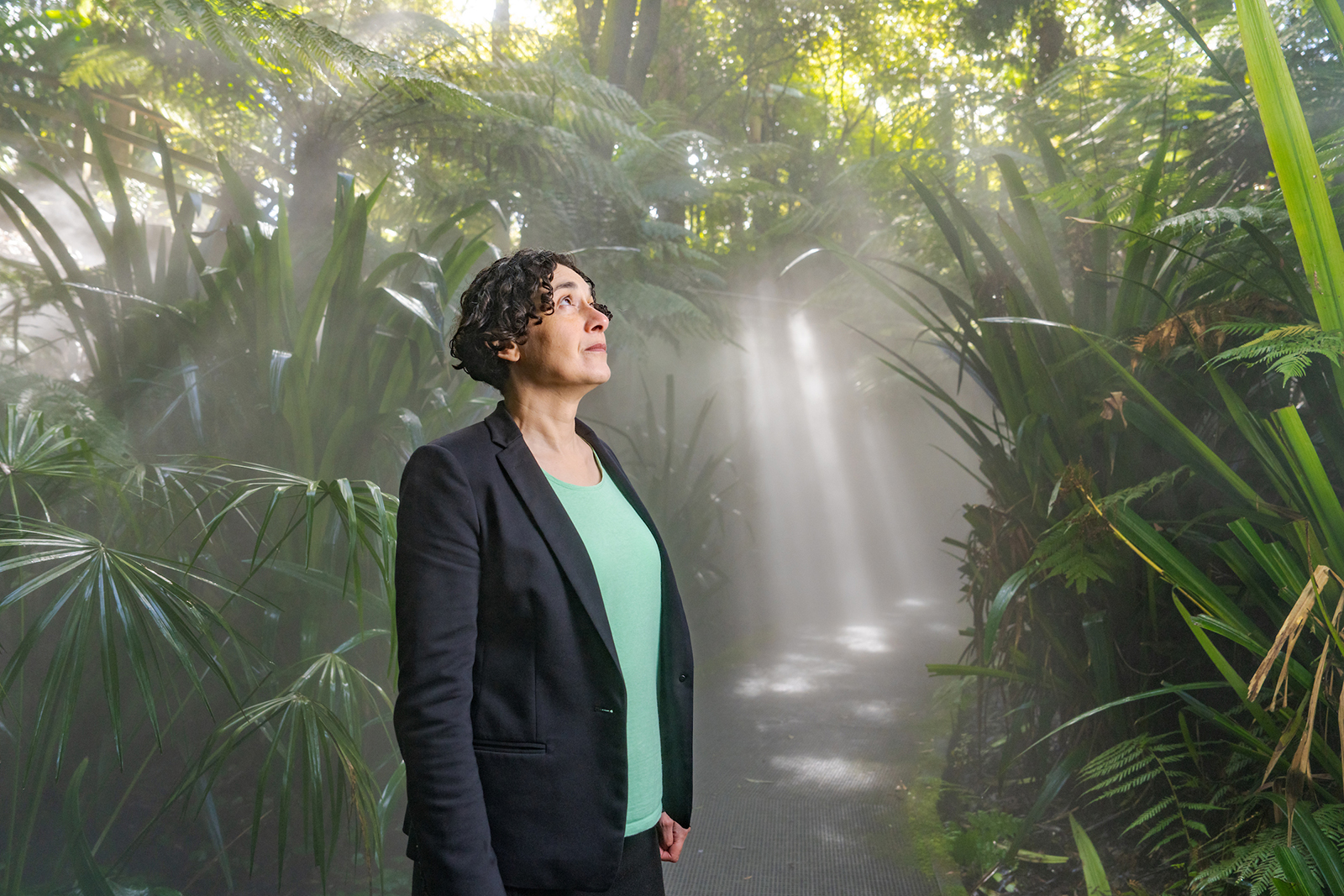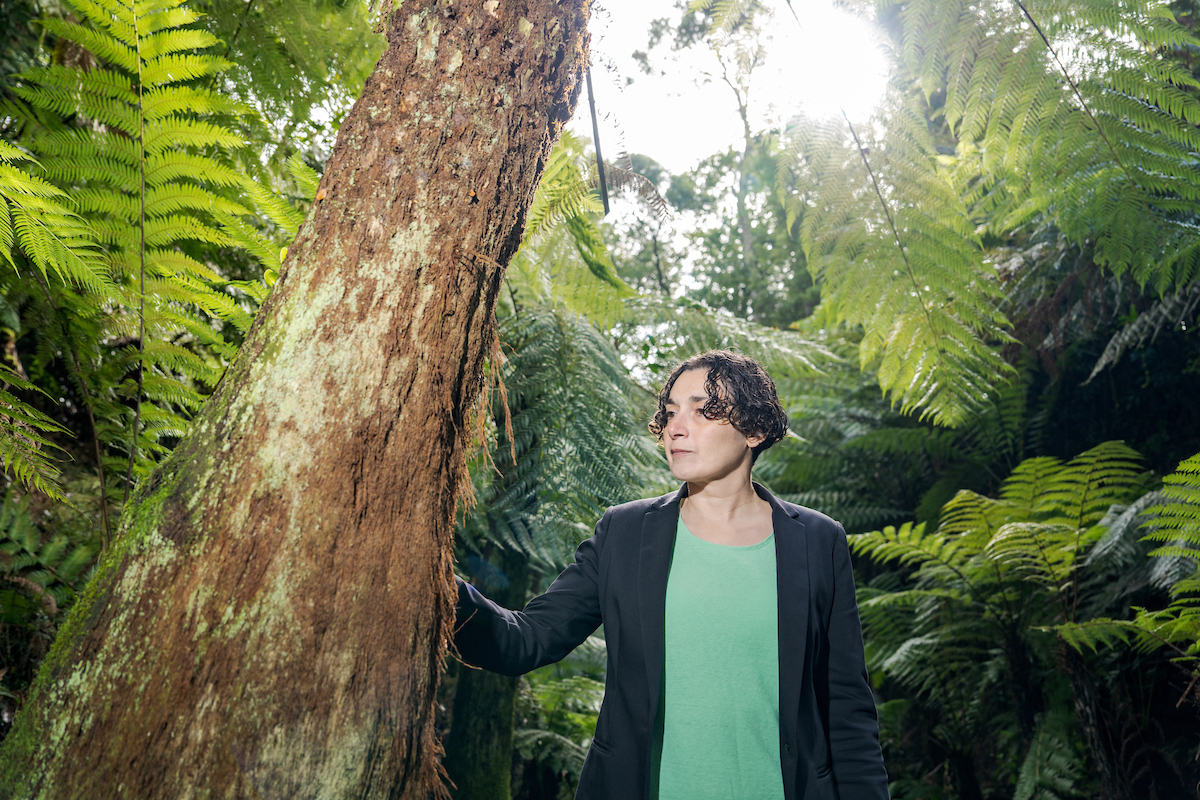Climate scientist Dr Joëlle Gergis still has hope for the planet

Since the age of nine, Dr Joëlle Gergis has kept a journal as a way of making sense of the world.
“Until I write, everything is just amorphous and floating around in my mind,” Gergis says. “I can’t make sense of things until I grab those words, catch them and put them on the page.”
Growing up in Sydney, her aspiration was to become an author. But when the severe bushfires of 1994 hit, Gergis’ attention turned to the state of the Australian environment and the science behind it. She was 16 and had never experienced anything so terrifying.
“There was smoke everywhere and ash falling in our neighbourhood,” she recalls.
These fires devastated the eastern seaboard, burning through 800,000 hectares. From the ashes, Gergis’ love of nature transformed into an interest in investigating Australia’s climate.
“I wanted to understand why our weather is so ferocious,” Gergis, now an ANU climate scientist, says. “Australia is a really dramatic place to live. We have these epic droughts followed by flooding rains and everything in between.”
These days, Australia is not the only place experiencing extreme weather conditions. From wildfires in Corfu and Hawaii to catastrophic downpours in countries including South Korea, India and Sri Lanka, the effects of climate change are upon us.
There’s a word for the existential dread you might be feeling, and for once we haven’t borrowed it from another language. Australian philosopher Glenn Albrecht coined the term “solastalgia” to describe the distress we feel in the face of environmental destruction.
It’s a sensation Gergis knows well. As a lead author of the United Nations’ (UN) Intergovernmental Panel on Climate Change (IPCC) Sixth Assessment report, she spent thousands of hours reviewing the latest data on the impacts of human-induced global warming. The gruelling three-year process brought together 234 scientists from 66 countries, all of whom were volunteering their time on top of their day jobs.

Before the IPCC report, Gergis had always been able to take a clinical view of climate science. Her own research focuses on historical weather records, making it easier to maintain emotional distance. But being privy to the extent of Earth’s environmental problems was heartbreaking.
“I feel like I can be very professional and very rational in the way that I approach my work, but I’m also a human being that lives in this magnificent country and I’m afraid of the changes that I’m seeing,” she says.
As the Black Summer fires of 2019-2020 raged, Gergis shared her reactions to the unfolding disaster in essays and articles for outlets including The Saturday Paper, The Monthly and The Guardian.
“If people like me, who sat at the UN table and have a complete overview of the true state of the world aren’t sounding the alarm, then who is?”
Being public about her grief over the loss of Australia’s natural beauty was not a comfortable experience. Each time a piece was published, she braced herself for backlash. But sometimes, fellow scientists would reach out to thank her for articulating their anxieties.
“Climate change can seem intangible, so I like to boil it down into the idea that it’s about protecting the people and places that we love,” Gergis says. “When our homes are threatened by fire or flood, we do everything we can to protect them.”
For Gergis, home is the northern rivers region of New South Wales, where she finds solace in the peace of the rainforests and the ocean.
It’s her message of caring for the places that matter most to us that has resonated so strongly with readers of Gergis’ book, Humanity’s moment: a climate scientist’s case for hope. Written between teaching semesters after Gergis had finished her IPCC work, the book has been published in Australia, the United States and the United Kingdom. It won the 2023 Scholarly Book of the Year Award in the Educational Publishing Awards Australia and was shortlisted for the Australian Book Industry Awards and the Queensland Literary Awards.
Although much of the science Gergis unpacks is confronting and more than a little scary, her outlook is hopeful. While she admits she too has her dark days, she still believes in our collective power to make a difference.
“If you stop and think about the firefighters who go out and protect our precious places, the COVID nurses who were on the frontline, the IPCC scientists working through a pandemic to get the report done under the most extraordinary circumstances, you can’t say there isn’t goodness in humanity,” she says.
When audiences at writers’ festivals ask what we can do to fight against climate change, Gergis reminds them that there is a precedent in history for ordinary people stepping up to make a difference. Recent social movements such as #MeToo and the Black Lives Matter protests have been grassroots catalysts for systemic change.
“Everyone alive today has an opportunity to be part of a group that tried to do everything we could to protect the things we love,” she says. “I want to be able to look back at this time and know that I threw everything I had at it.”
Whether you’re a writer, a scientist, or in Gergis’ case, both, we all have a part to play. From removing the social licence for fossil fuel production to advocating through the arts, what happens next is up to us.
This article originally appeared on ANU Reporter.



